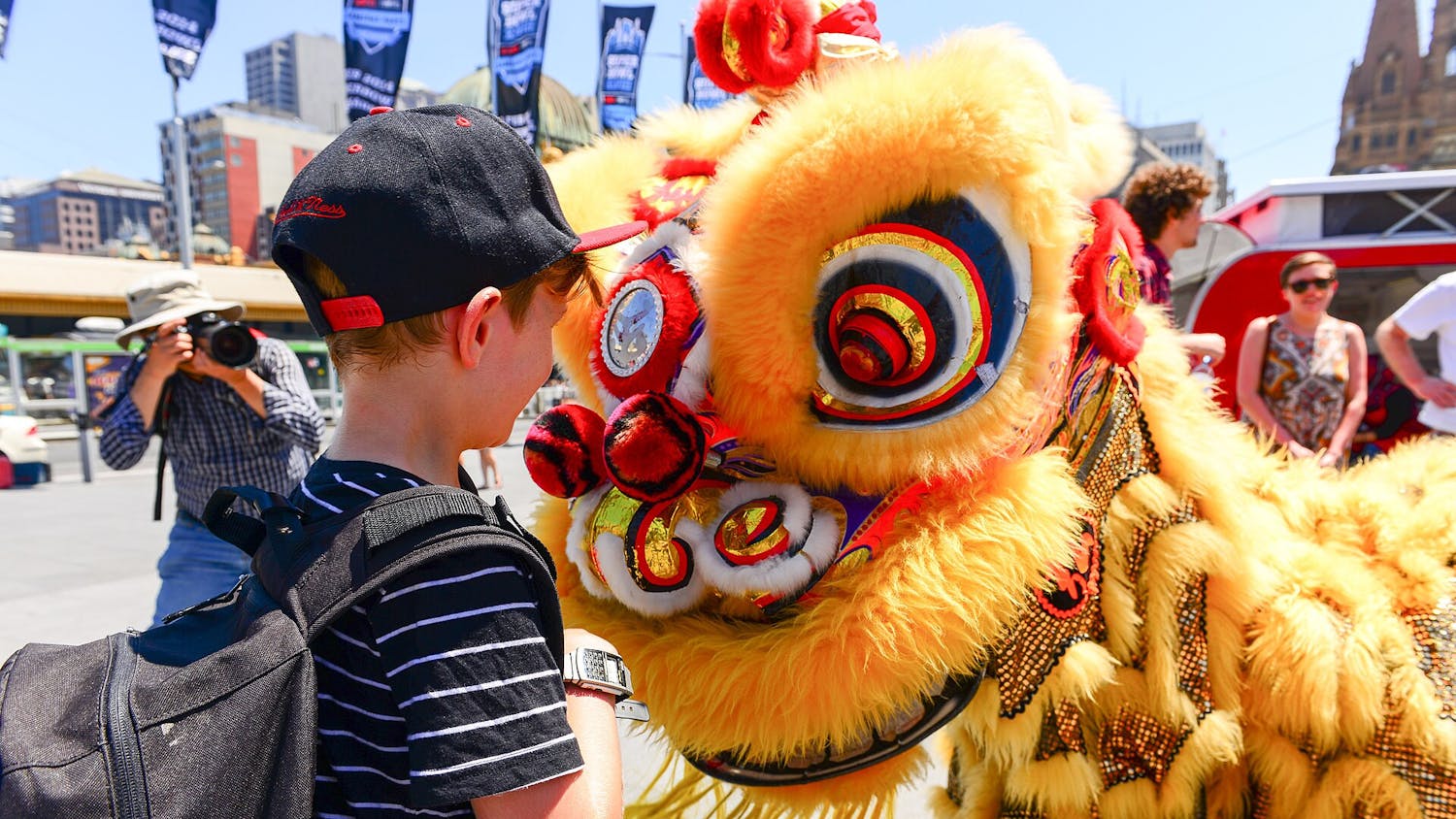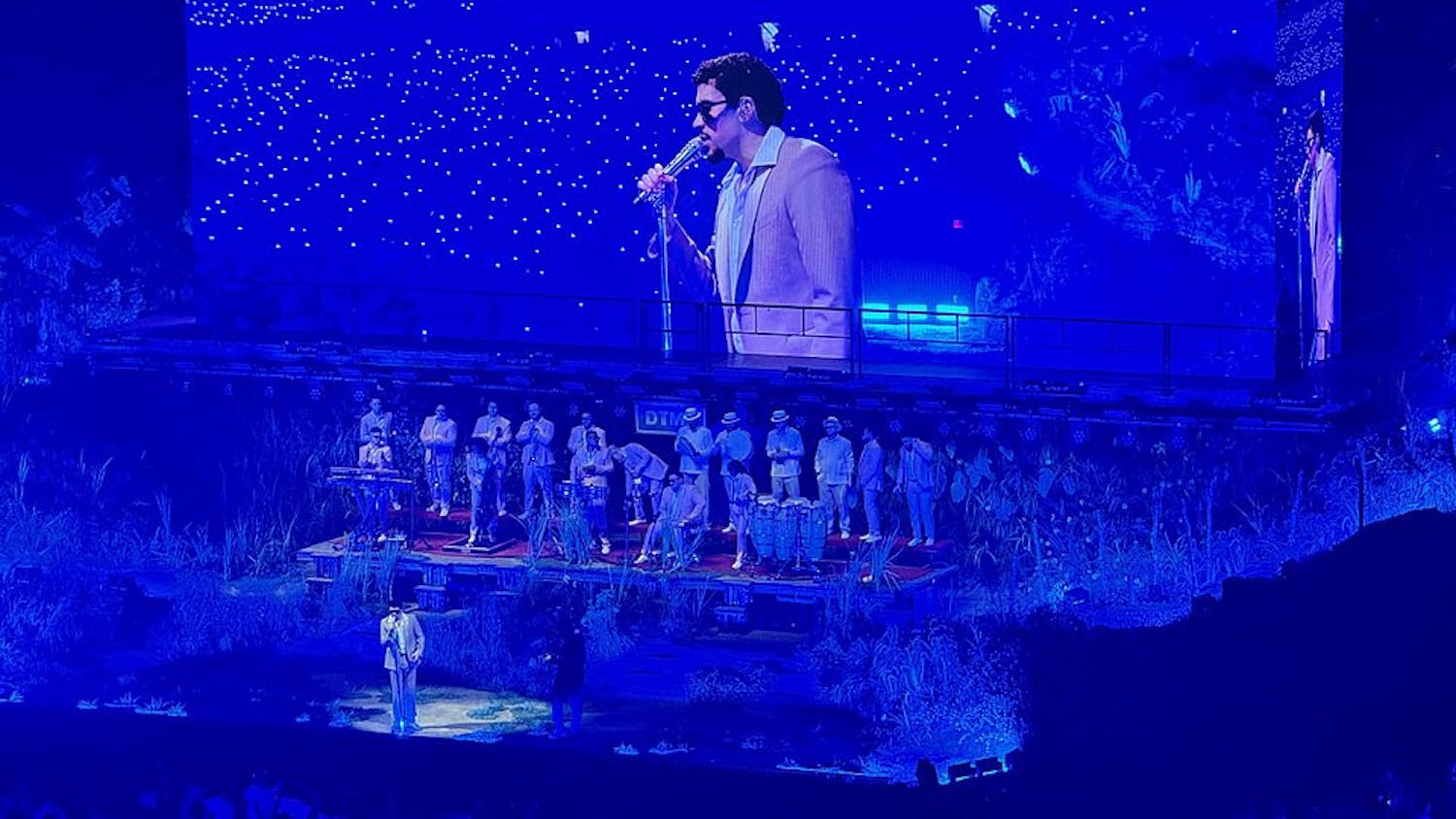I was sitting at a table in the annex of Michelangelo’s Coffee House, spacing out over my assigned reading for English 245 and eavesdropping on a group of elderly men who gathered at a table next to mine for their weekly get-together. Through the window, a moving truck twisted its way into the small cul-de-sac behind the café, attempting to loop its tail around a vintage Ford Bronco before the driver eventually gave up and sent a boy in a cream-colored uniform to look for the owner of the obstacle.
The owner, one of the older men in the chatty group next to me, introduced himself to the boy as Pete. After a brief conversation between the two, to my bewilderment, Pete handed over the key to his truck and sent the boy on his way. A few minutes later, the boy came back with Pete’s key, the Bronco remained intact, and the job was done — simple, efficient and oddly reassuring. I was dumbfounded. But why? It seemed perfectly logical. I couldn’t help but ask: have we taken “stranger danger" too far?
Perhaps it was the hubris and optimism of the 1950s that still lingered with Pete in the year 2025, but to the best of my knowledge, car thievery was still alive and well 75 years ago. What Pete relied on was intuition, an often underrated skill. I and many others tend to underestimate our guts. It was obvious to Pete, as it should have been to me, that the boy would not steal his Bronco while on the clock. The outcome was a win-win: more time for Pete to sip his coffee and more parking space for the movers.
The notion that we should never trust strangers seems uniquely American. There are certain things we can not do in the United States, because it's different here. But this wasn’t always the case. Hitchhiking is an interesting example.
Before the 1980s, hitchhikers were a common sight. They stood at highway ramps, gas stations and intersections holding signs with charming hope. Yet today, this form of transportation is practically obsolete, at least in the U.S. Hitchhiking still thrives as a mode of transportation in many other countries. In fact, just last summer my girlfriend and I were able to cross 500 miles of French countryside by sitting on the side of the road with our thumbs in the air, relying entirely on the goodwill of strangers.
Despite my affinity for this style of travel, I have consistently said that I wouldn’t hitchhike in America. Perhaps I’m a part of the problem, succumbing to the frenzy surrounding infamous American serial killers who tricked their victims with something better than free candy: a free ride. Or maybe it is simply because our culture has shifted towards a mutual skepticism of one another. As a hitchhiker, I know most drivers in this country won’t trust me, therefore I don’t trust them, reinforcing a cycle of parasitic distrust.
“Stranger danger” has been ingrained into our beings since before we could even form a coherent thought, but stranger doesn’t always equate danger, and what we are left with is a dissipating faith in the general goodness of our neighbors. Of course when the mantra is told to children the message is valuable, but as adults, it can be surprisingly easy to forget that not everyone is plotting our downfalls. This fear, coupled with an increasingly online, post-Covid world is making us lose something that was already waning in the years prior: community. And often, the cost of community is trust.
In our everyday lives we can find a profound sense of community through even the simplest conversation with a stranger. Whether that be on the bus or in line at the grocery store, I encourage you to go out of your comfort zone and spark idle chit-chat with someone you may never see again. This isn’t to say that we shouldn’t stay cautious, but rather that we must recognize when we are being needlessly hypervigilant. It is important to remind ourselves that we are social creatures, wired for new bonds, seeking connection at every corner and that in order to have the meet-cute, you must first — meet. By letting our guards down just enough to invite new experiences, we can safely give unexpected connections the opportunity to flourish.
Jackson is a junior studying journalism. Do you agree that we have taken stranger danger too far? Send all comments to opinion@dailycardinal.com






